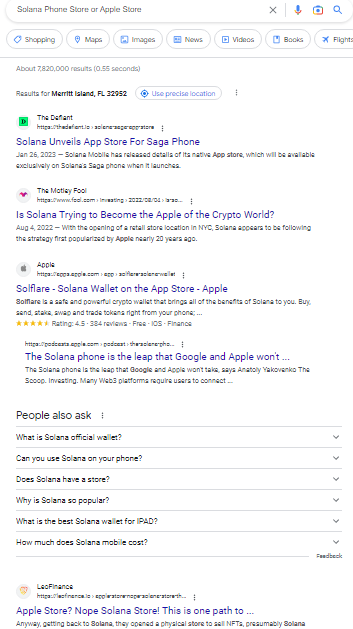The buildout of LeoGlossary continues.
A key part of the idea behind this is to provide a repository of information related to the main focus of the platform. Of course, a feeder system is vital. This can appear in many differnet ways.
One is to get the size of the LeoGlossay pages larger so they can rank on their own. Another is to get the links in pages that rank with the search engines. This is not a direct route but can be effective in moving people in that direction.
An example was provide by @shortsegments.
Below is the Google page for an article written. We can see how it #4 on the list. This is obviously a niche search topic but, as always, we have to start somewhere.

Here is part of the post:

There are a handful of Leofinance links in the article. A number of them go to LeoGlossary as shown in the cutout. Here is where we see the feeder system inplay.
Does this mean any clicks will come from this? Not likely. It is a niche topic yet does help in the rankings. The point is that we have the links available for people to follow if they do come upon the article.
Millions of Links
One of the idea with LeoGlossary was to play the numbers games. As more articles are written, if they contain the links, that serves as a feeder system to other pages. Obviously, within LeoGlossary we have links built to further the path that people can take.
The Internet is a vast array of websites joined together. People click on all kinds on things, presenting a path of how they arrive at destinations.

To me, the iceberg analogy applies. As we can see, most of the size is out of sight. This is LeoGlossary. We are seeking to keep expanding it so the width and depth keep growing. When people do eventually get there, it is an ever expanding epicenter of information.
At the same time, the tentacles keep extending within the database. We keep providing more links within LeoGlossary to offer more information to those interested.
The links in articles are a potential feeder system for the repository. Just like the above article, there is the opportunity to direct some to LeoGlossary. So far the focus is on internal links. This means we are havily dependent upon Leofinance articles.
Long Game: Ad Revenue
This is a multi-year project with the focus upon building something large that can become a major asset to Leofinance.
One of the more immediate areas is with regards to the upcoming Ad Revenue. This is something long discussed and, with the advancement of the new UI, should be nearing. Naturally, this will not be implemented until the UI exits alpha and has all the features integrated that exist on the old one.
That said, we can expect the Ad Revenue to be added when that transition occurs.
From what we understand, this will benefit every Leo Power holder. My suggestion is to have the money from the ads used to buy $LEO off the open market and distribute it to Leo Power holders as such. This way people are generating a return off their staking of $LEO as well as gaining more influence. This means $LEO would act as an [access token]
(https://leofinance.io/@leoglossary/leoglossary-access-token).
LeoGlossary can aid in this in a couple different ways:
- more pages for ads (clicks)
- more time spent on the pages
The first is rather obvious; just reference the iceberg idea.
One of the metrics that helps sites is with time spent on each page. Most people are on a page only a few seconds then leave. Such is the nature of the Internet. However, having people on pages for longer periods of time helps.
As we add more to each page with LeoGlossary, we can see how this could help. That is the goal: to provide more opportunities for people to remain on the platform.
Hopefully, this will equate to more feeding into the ecosystem.
If you found this article informative, please give an upvote and rehive.

gif by @doze

logo by @st8z
Posted Using LeoFinance Beta